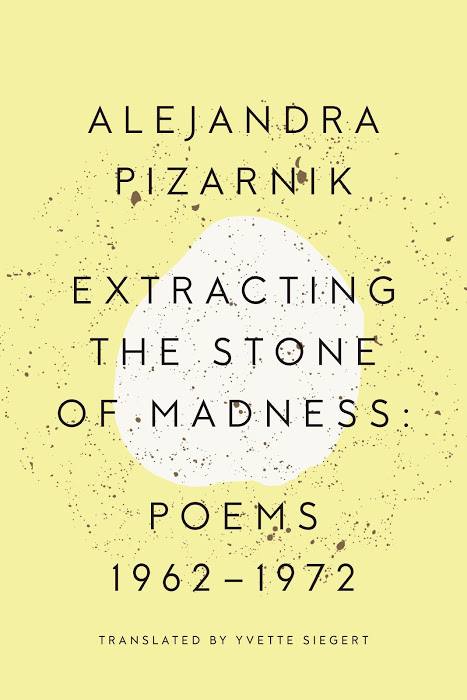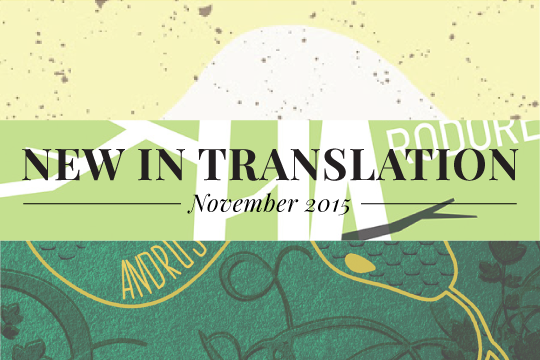War, So Much War by Mercè Rodreda, tr. Maruxa Relaño & Martha Tennent (Open Letter Books)—reviewed by Sam Carter, assistant managing editor

“The sleep of reason produces monsters,” reads one of the epigraphs to Mercè Rodoreda’s Quanta, quanta guerra, now available in English as War, So Much War from Open Letter Press. Drawn from the title of a famous Goya etching, it is a fitting prelude to a work that explores the ravages of war from a pseudo-picaresque perspective in which we find ourselves face-to-face with a narrator coming to terms with the unnerving and unending monstrosity of war, rather than encountering a delinquent carefully crafting a tale of struggle and self-justification. Even if this conflict initially resembles the Spanish Civil War, in his narration, protagonist Adrià Guinart insists on an ambiguity permeating all levels of the work and suggesting the plausibility of less localized interpretations.
In sparse prose, crisply translated by both Maruxa Relaño and Martha Tennent, Adrià recounts his interactions with the figures he meets throughout a journey that begins with an enthusiasm for the escapist possibilities of war and yet ends on entirely different note. His own narrative “I” proves elusive as it frequently disappears into a chorus of other voices that dominate the task of depicting a war-torn landscape. Describing the novel’s structure with another of its epigraphs—“A great ravel of flights from nothing to nothing,” from D. H. Lawrence—is ultimately too tempting to pass up, for it is precisely in its itinerant quality, in the way it moves from one episode to another without the need to establish definitive links, that the novel finds its strength.
“A mystery must struggle—that is its principal reason for being—so that its great beauty will not be stripped from it,” writes one of the characters in the novel, and though War, So Much War is by no means a mystery, the patient reader will certainly glimpse some beauty in it. Other works by Rodoreda might prove more worthwhile, the ever-increasing profile of an author once labeled the “invisible woman” by Gabriel García Márquez (who struggled through some of her works in the original Catalan instead of using a Spanish translation) remains a significant achievement on the part of both Open Letter and the Institut Ramon Llull. One hopes they continue to grant greater visibility to other writers from the region.
***
Extracting the Stone of Madness: Poems 1962-1972 by Alejandra Pizarnik, tr. Yvette Siegert (New Directions)—reviewed by Poorna Swami, Editor-at-Large India

Extracting the Stone of Madness: Poems 1962-1972 gathers Alejandra Pizarnik’s middle to late poems translated from the Spanish by Yvette Siegert. The book unfolds in an evolutionary manner and reveals Pizarnik’s creative and philosophical concerns through various stages of her career.
Straddling the boundaries between confession and ars poetica, the poems offer shifting relationships between poet and poem, self and surrounding. The book’s first collection, Works and Nights (1965), is composed of timid and rather unmemorable verses. Too often, Pizarnik lapses into contrived, self-reflexive language. But in the following two collections (Extracting the Stone of Madness (1968) and A Musical Hell (1971)), Pizarnik sheds the reserve that colors these initial poems.
The lover, the night, the moon, and the silence of the earlier poems all remain, but they are no longer as neatly postured. Pizarnik extends her three-word lines into something closer to full—though fractured—sentences, oscillating between fleeting stanzas and prose poems. Siegert does a fine job of keeping up with Pizarnik’s structural poetic experimentation and her obviously maturing voice. The translations are delicate and precise, yet bold enough to retain the wild associations between lines.
The rest of the poems in the book (all uncollected or posthumous works) culminate in a wonderfully coarse finish. In “Only the nights,” Pizarnik remarks, “To fuck and to die have no adjectives.” The erotic edges toward the profane and the unraveling is satisfying. The speaker’s relationship to life also grows tenuous here and poetry becomes both a source of life and the end of one. “The poem is a space and it hurts,” Pizarnik writes. It is hard not to tinge readings of Pizarnik’s later poems with autobiography; some she wrote even weeks and days before committing suicide in September 1972.
Pizarnik’s poems are like paintings, impasto surfaces in which each stroke sits just a little uneasily next to the other. And it is in this dissonance that Pizarnik claims her space. She writes, “When the roof tiles blow away from the house of language, and/words no longer keep—that is when I speak.” And she is right. Extracting the Stone of Madness: Poems 1962-1972 begins ordinarily, but its cumulative effect is anything but. While one might be inclined to dip into a book of poetry and skim around until one chances upon a vaguely interesting title or first line, that would defeat this book entirely: Pizarnik’s tone and insight build through each poem and each collection and submerge the reader in a totalizing experience of love and loss, epiphany and irrelevance. It is rare for poetry to elicit lasting empathy for its speaker in the same way that fiction does, but Pizarnik comes remarkably close. It would be a shame to not stick with her through each and every poem, and linger with them beyond the page.
***
The Man Who Spoke Snakish by Andrus Kivirähk, tr. Christopher Moseley (Grove Atlantic)—review by Hannah Vose, social media manager

The old ways are dying out, and Leemet is on the knife’s edge.
In a medieval Estonian village, all is as you might expect. German knights have brought their language and their religion to the people, and peasants work the fields, eat bread and gruel, and pray to Jesus for protection against the things that lurk in the forests.
But life in the forests is altogether different. Those who have not gone to the villages have held onto the ancient traditions of their people. This is a world where men can learn the language of adders and control all but the stupidest forest creatures with it, where bears and women are unable to control their lust for each other, where wolves are milked and ridden like cows or horses, where forest sprites are supposed to demand tribute, and where tales of the bloodthirsty and avenging Frog of the North are history instead of myth. In Andrus Kivirähk’s The Man Who Spoke Snakish, the things which seem miraculous to us are parts of a history and a heritage that we have willfully forgotten.
Our narrator, Leemet, is caught between the heritage of the forest and the novelty of the village. He learns Snakish from his beloved uncle and kills the “iron men” who wander across his path, but reviles the urgings of the bloodthirsty sage of the grove. He admires a beautiful village girl but abhors the stupidity he sees in the peasants who bow low to invaders and the “sprite” Jesus Christ. Leemet is loyal to no higher power; he relies on his sense of right and wrong, informed by the history of his people and the friends he bonds with. But in a community and way of life on the brink of collapse, Leemet’s choices result in catastrophic consequences.
This is a story about change, about resistance, about cruelty and—most of all—about loss: loss of innocence, loss of tradition, loss of self, loss of life. It is hard to overemphasize how deeply disturbing this book can be. In violent encounters, no detail is spared. Every ounce of Christopher Mosely’s translation is raw and visceral, and can sometimes hurt to read. But it somehow never feels gratuitous; every drop of blood waters the future, every death destroys a part of the past. The Man Who Spoke Snakish complicates the lines between fantasy and reality, between justice and cruelty, and in the end we have to wonder who is more civilized, after all: the men or the beasts?

